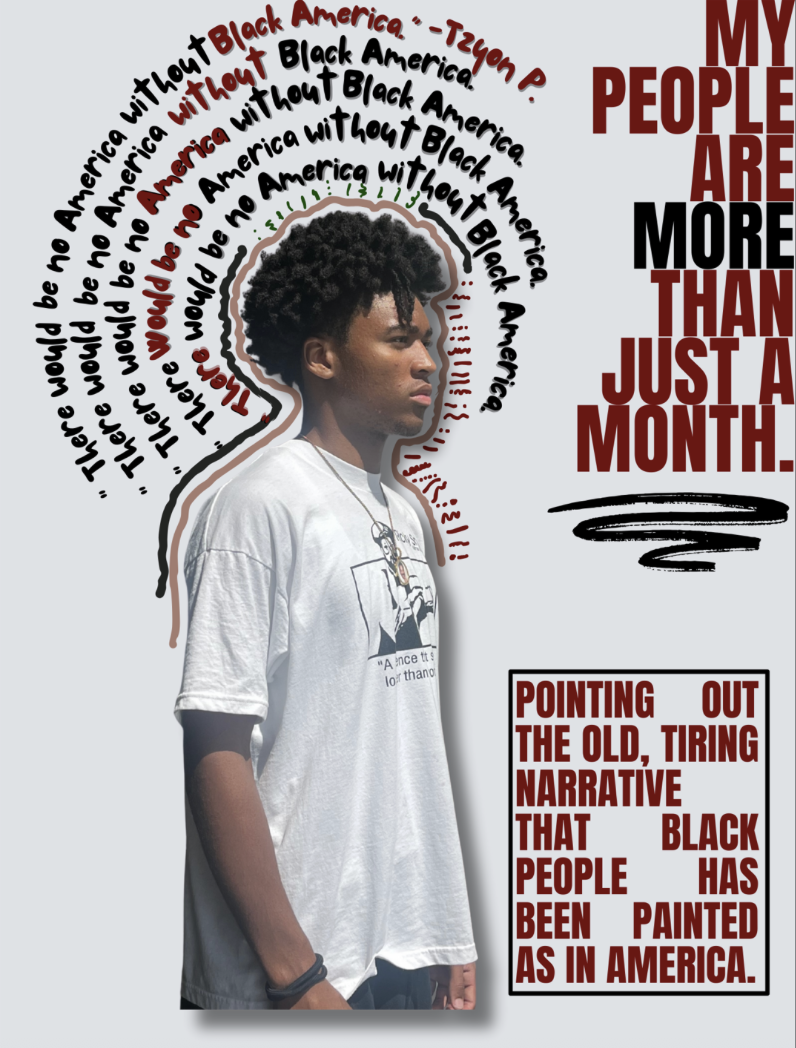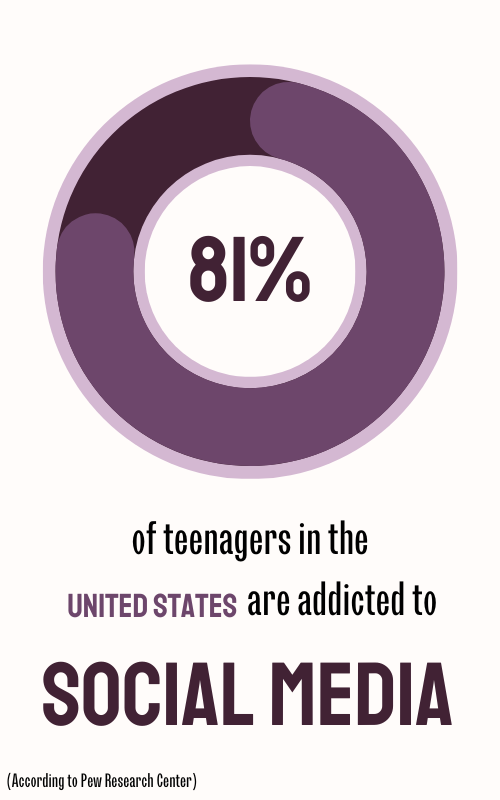For decades, phones have constantly evolved and become more accessible for the current population. From pop culture to general day-to-day duties, technology has a huge impact — especially on the younger generation.
However, when it comes to additional inventions like social media, the effects it has on teenager’s mental health is a major downside to phone usage. This is a major problem, as today’s society relies heavily on technology. The more people use it, the worse mental health can become.
Like most teenagers, I spend more time on my phone than I probably should. During the summer before sophomore year, if I wasn’t at cross country conditioning or hanging out with my friends, I was inside on my phone. I didn’t realize how isolated I was until school started again and I was able to socialize with kids my age.
Social media can both cause and worsen mental health issues for many teens, including myself. According to the Pew Research Center, about 81% of teens in the United States use social media. The majority of the youth population is being subjected to content that may not always be safe to consume.
The amount of time spent on social media is a large reason why mental health has become such an issue. According to Yale Medicine, “Those who used social media over three hours each day faced twice the risk of having negative mental health outcomes, including depression and anxiety symptoms.” Overusing social media, while tempting at times, can do more harm than good in the long run.
Many youths also use social media as a replacement for real-world connections. Frequent social media use has become more and more common, and teenagers who have a hard time socializing may use their phones and other devices as a “safe space.”
According to McLean Hospital, “When reviewing others’ social activity, people tend to make comparisons… They’re searching for validation on the internet that serves as a replacement for meaningful connection they might otherwise make in real life.”
Although they may feel as though they don’t have another choice, hiding from problems is not the best way to solve them. Sometimes, when teenagers aren’t thrilled with their personal life, they use the Internet as an outlet to their troubles.
Continually, copious amounts of screen time can be directly traced to dopamine. Dopamine is a chemical compound released by the brain to stimulate feelings of pleasure and satisfaction. According to McLean Hospital, “the platforms are designed to be addictive and are associated with anxiety, depression, and even physical ailments.”
Big social media apps have created very specific algorithms to target mentally vulnerable individuals in order to maximize screen time usage. Young people — whose brains are not fully developed — can have a hard time stopping themselves from overusing their devices.
Thousands of teenagers indirectly chase a sort of dopamine high by relying on screens to create feelings of happiness and belonging. Many teenagers have a borderline addiction to not only social media, but to their phones as a whole.
According to Cross River Therapy, the amount of teens in the United States that are addicted to social media is around 70%. Although social media is still a new invention, the effects that have been shown during such a short period of time is concerning
Despite all the research that has been conducted on the negative impacts it has, people continue to use social media in their day-to-day lives.
Maintaining relationships with loved ones who live far away is one reason why teenagers are connected to social media. According to Lifespan Living, a pro of social media is “staying connected with family and friends worldwide via e-mail, text, FaceTime, etc.” Social media can help keep preexisting relationships intact, even if they’re far away.
While this can be very beneficial for those who may not be able to travel for a multitude of reasons, this isn’t always a perfect solution. Even when they have technological resources available to then, families may not be able to keep in touch due to differing time zones and day-to-day responsibilities.
Another reason why teens use social media is to find connections with other people. According to Social Networking, “using social media, people can have friends with similar interests in multiple cities, states, and countries.” For teens who might feel lonely or isolated, having things in common with other people can provide them the companionship they don’t receive in real life.
However, this can often lead to dangerous situations. Many cases of kidnapping can be connected to Internet and social media use, especially for impressionable kids and teens. According to Internet Safety 101, a 13-year-old girl was raped, beaten, and tortured for four days by a man she had met on the Internet. Often times, people — especially strangers — don’t always have the best intentions.
While social media can have a negative effect on both teenagers and people as whole, that doesn’t mean it should be banned for good.
One way to use social media in a health manner is to utilize it for more productive activities.“Research indicates that having a purpose in life is good for mental health. For example, having greater purpose in life was significantly associated with lower levels of depression and anxiety,” says the American Psychiatric Association. Whether it’s listening to music or learning a new language, strengthening existing hobbies and creating new ones can be beneficial for a healthy mental state.
While using technology to one’s advantage can be a good use of time, another way to help mental health is to set screen time limits. According to the Mayo Clinic Health System, screen time limits have “improved physical health, and decreased obesity [in people].” Encouraging activeness by reducing the amount of time spent on technology can help both physical and mental activity.
Furthermore, limiting screen time usage can help sustain mental health. “Reducing screen time frees up more time to connect with family and friends. Feeling connections with others can help ward of symptoms of stress, depression and anxiety,” says the Mayo Clinic Health System. Not only can reducing screen time make time for other activities, but it can also strengthen the bonds already instilled with loved ones.
All in all, going on social media and other forms of the Internet can have an overall negative impact on mental health. However, setting screen time limits and going on the Internet for productive reasons only can be beneficial for both the body and the mind.




























